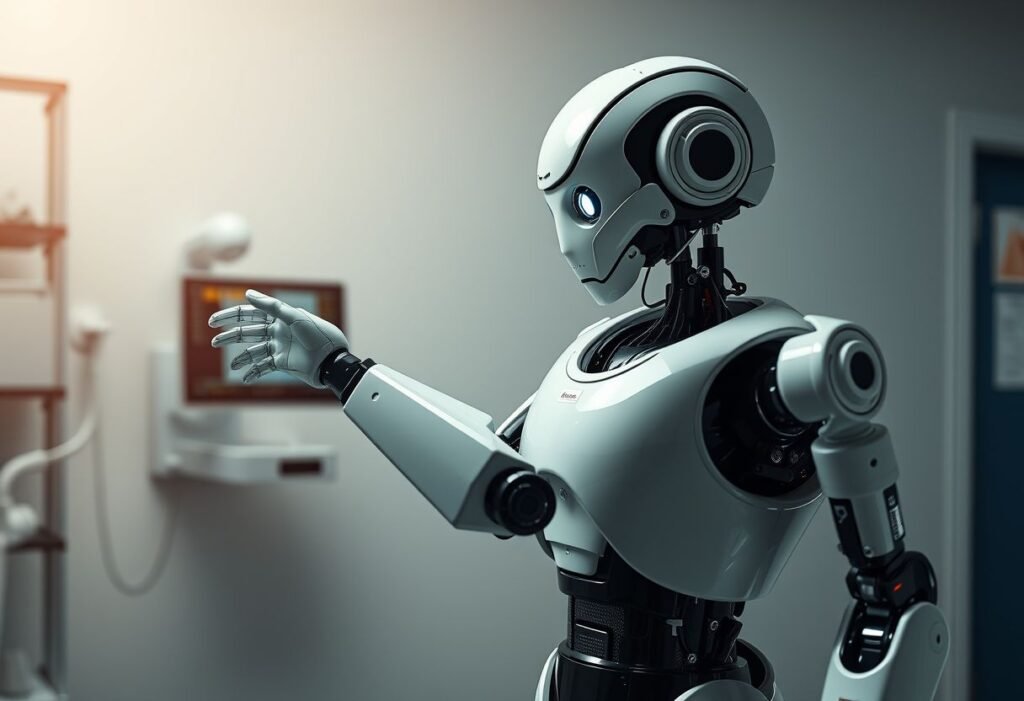In recent years, the integration of robots into healthcare systems has transformed the delivery of medical services. This innovative approach not only enhances operational efficiency but also improves patient outcomes, showcasing the profound impact of robotics on healthcare delivery.
Revolutionizing Patient Care with Robotics
The introduction of robotic systems in hospitals has notably improved patient care. These automated technologies assist healthcare professionals in various tasks, from surgical procedures to routine monitoring. For instance, robotic surgical systems provide surgeons with enhanced precision, reduced recovery times for patients, and decreased instances of infection. Additionally, robots are now utilized in rehabilitation, helping patients regain mobility through tailored therapeutic exercises guided by advanced algorithms.
Streamlining Hospital Operations
Robots are also utilized to streamline operations within healthcare facilities. With the integration of artificial intelligence and automation, tasks such as medication delivery and disinfection can be managed efficiently. Robotic systems ensure medications are delivered accurately and safely to patients, minimizing human error. Furthermore, disinfecting robots employed in hospitals reduce the risk of hospital-acquired infections by ensuring that surfaces are thoroughly sanitized, demonstrating how robotics improves overall operational functionality.
Enhancing Telemedicine Services
The rise of telemedicine has seen robots play an increasingly pivotal role. Robots equipped with communication technology allow healthcare providers to connect with patients remotely, providing timely consultations and assessments. These technologies break geographical barriers, enabling specialists to assist patients in rural or underserved areas. Additionally, the automating of certain diagnostic tools, which can relay real-time data to providers, further enhances the effectiveness of telemedicine services.
Data Collection and Analysis
Robots contribute significantly to data collection and analysis in healthcare. Through advanced sensors and data processing capabilities, they gather valuable health data, which can be utilized for research and enhancing patient treatments. For instance, robots can monitor patient vitals continuously and alert healthcare providers if any anomalies are detected. This type of proactive healthcare can be crucial in managing chronic conditions and reducing emergency interventions.
The Future of Robotics in Healthcare
The future of robotics in healthcare appears promising, with ongoing innovations poised to redefine treatment protocols. As technology advances, we anticipate the development of robots capable of performing more complex surgeries, personalized medication delivery tailored to individual patients, and enhanced patient interaction through social robots. Such advancements not only enhance patient care but also alleviate the burden on healthcare professionals, allowing them to focus more on critical tasks.
Ensuring Ethical Use of Robotics
With the rise of robotic technology in healthcare comes the necessity for ethical considerations. It is essential to address concerns regarding patient privacy, consent for robotic interactions, and reliance on automated systems. Establishing comprehensive regulations and ethical guidelines will help ensure that while technology enhances healthcare delivery, patient safety and privacy remain paramount. Continuous training and engagement with both healthcare providers and patients will facilitate a smooth integration of robots into established healthcare frameworks.
Disclaimer: This article is for informational purposes only and does not constitute medical advice.





















